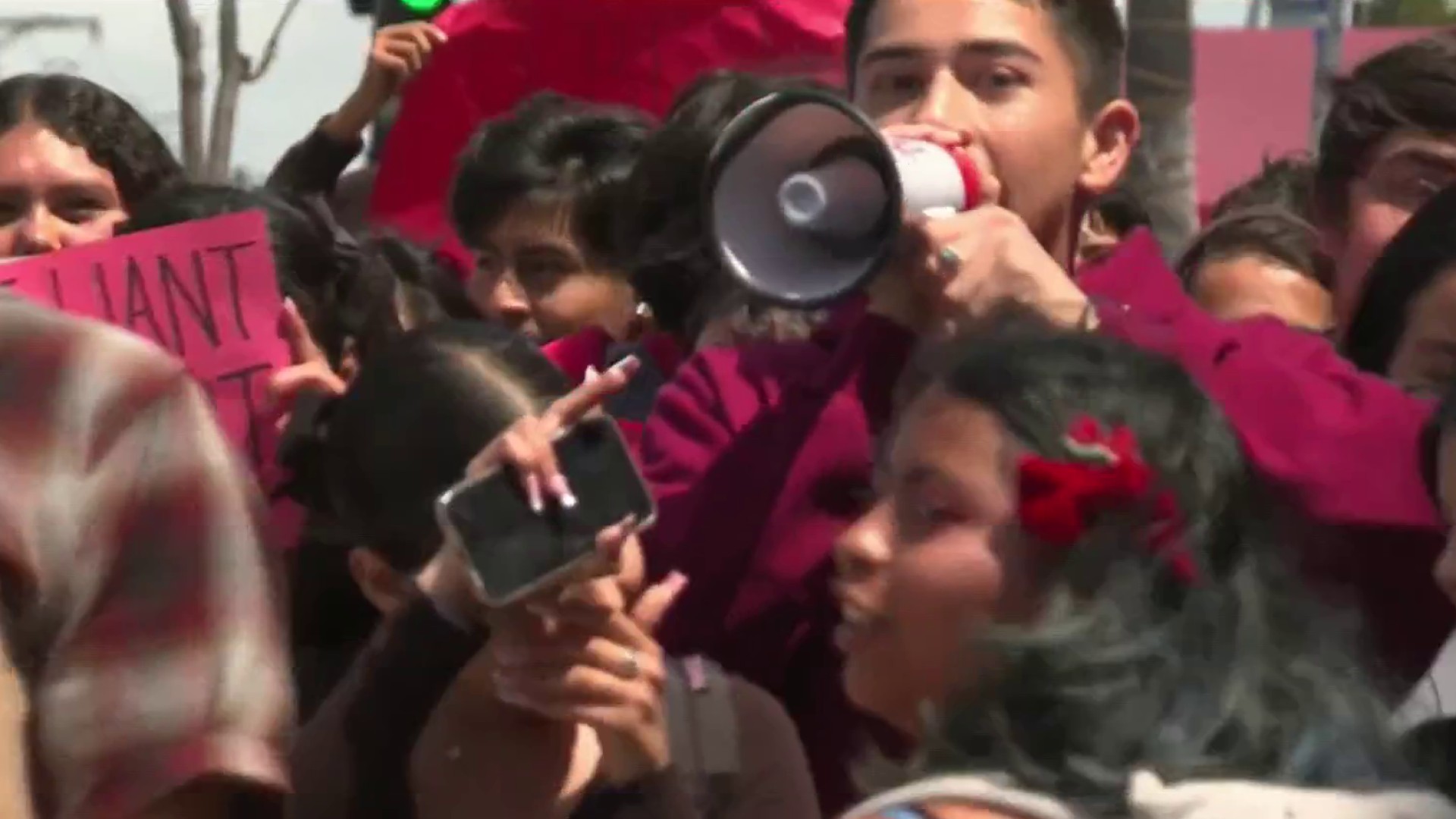It's a scene football fans have seen hundreds of times, played out on countless fields: players kneeling hand in hand, united in prayer before doing battle on the gridiron.
But one such scene in San Diego is sparking national debate. It unfolded Saturday before the Air Force Academy Falcons lost to the San Diego State Aztecs 27-24 in the Mountain West Conference Championship game at Qualcomm Stadium.
Multiple players knelt to pray, something they do often with, at times, nearly the entire team.
Mikey Winstein, president and founder of the Military Religious Freedom Foundation, said Air Force players participating in public prayer "is a scandalous outrage."
"It’s a disgrace. It’s a putrid example of fundamentalist Christian supremacy, triumphalism and exceptionalism and it has to stop," Weinstein said. "Those individuals that are dressed in the Air Force uniform; that’s their uniform of the day. They’re members of the military and they are under different rules than the civilian counterparts they’re playing on the field."
That's the root problem in the eyes of Weinstein’s foundation.
It stems from a 1974 Supreme Court ruling in Parker v. Levy, which established what’s known as the Doctrine of Military Necessity or the military-deference doctrine. The doctrine says members of the military — who must have "obedience, and the consequent necessity for imposition of discipline" — require a different application of the First Amendment rights civilians enjoy.
Therefore, if Alabama and Notre Dame want to get all 120 of their players at midfield before a game and pray, there would be no issue. But the fact that members of the military are taking part, according to Weinstein, raises serious Constitutional issues.
The situation found its way to the Military Religious Freedom Foundation this season because a growing number of people associated with the Air Force football program claims these team prayers are not optional. Weinstein said players join in the team prayers, even if they are not comfortable doing so, for fear of potential punishment should they decline.
"We have families of players, we have players, we have girlfriends of players, we have staff and faculty 144 strong at the Academy. They’re terrified to go forward and go up the chain of command or to file an official complaint for fear of facing reprisal or retribution. They should not be coerced in any way, shape or form to publicly sit there and engage in a massive team prayer for one particular version of Christianity," Weinstein said.
Weinstein said he does not know who would be in charge of the alleged forced participation in prayer, but the issue has now gained enough traction to capture the attention of the Air Force Academy. This week, the Air Force announced plans to formally look into the situation.
"The United States Air Force Academy is attentive to all religious freedom concerns, and we are conducting an inquiry into the complaint," the academy said in a statement. "The Air Force is dedicated to maintaining an environment in which people can realize their highest potential, regardless of personal religious or other beliefs."
Local
Stopping the practice of public prayer will not be remedy enough if any wrongdoing is found, according to Weinstein.
"Those that are allowing it to happen need to be visibly and aggressively punished," said Weinstein, who said his organization does not have evidence of any non-Christian faiths being banned from similar public prayers.
This issue may go well beyond the football field. In a series of emails published anonymously by the MRFF, both active-duty and retired Air Force officers warn that the sight of Air Force players praying en masse can be used as propaganda by groups such as ISIS and al-Qaeda in the Arabian Peninsula to drum up more anti-American support.
"The optics are not just bad but potentially deadly," wrote one Air Force general.
MRFF said if the Air Force Academy’s inquiry does not yield results its clients find satisfactory, it will consider a federal lawsuit.



